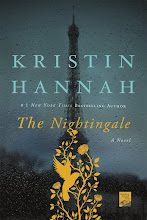
So true.
Quite often I'm asked by new students where I'm from. I always say California, then "near Los Angeles" if they ask further. Sometimes I'm pegged for being from the East Coast (and not just by students- random strangers I talk with think that, too) and a few times I've come off as European. I assume it's some combination of my skin color (very Mediterranean), that I'm not the stereotypical American girl (read: blonde), and maybe something to do with me driving a giant van full of kids in a skirt. They also always ask me if I like San Diego better, which of course I answer with a wholehearted yes. Without fail, all the students have the same opinion of San Diego: it's chill and full of friendly people. San Diego is not like New York or Chicago, other cities our foreign students frequent, and that's always said positively. I feel like California is separate from the rest of the United States, and I think the students pick up on that. I hope the feelings they get from San Diego are the ones they apply to all of the States, because everyone I've seen leave has been sad to go back. They make friends, learn the culture and feel like they fit in.

A financial analyst from the East coast was visiting my boss and I picked him up and took him back to campus, where he was staying. I was expecting someone older, but the guy who got in was young. We talked about my job (we're the only campus that has shuttles), my background and he asked why I'm not teaching. "You're already an EF employee and you have a degree in English. It seems obvious," he said. Well, sir, it actually does seem obvious. My favorite part of my job is talking with the students and discovering what it was that made them want to learn English and want to learn it in San Diego. A couple of the students even told me they learned more English just by talking with me in the van than in class. Which makes me think back on how language was taught to me: Spanish class was all grammar and sentence structure, things I'm not very good at explaining in English, so my Spanish skills are poor at best. Is this how we teach English to foreigners?

Just for fun.
As a shuttle driver I form a special bond with the students that teachers and other staff don't. I take them away from the school (which is in the middle of nowhere) to the beach, or downtown or shopping or the movies. I take them clubbing and blast dance music for them. The shuttle is their ticket away from the stress of school and because I'm the driver they feel like they can be honest. If I do teach I'd like to keep a few shuttle shifts- you learn so much more in the van than you do in the classroom, and that learning goes both ways.


